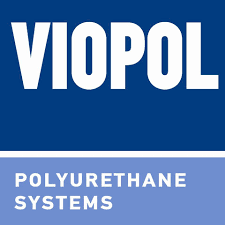Attikes Diadromes S.A., the Operator of Attica Tollway (known also as "Attiki Odos") of Athens, Greece, is the winner of the 2008 Road Achievement Award for the category of Environmental Mitigation. The prestigious award programme which was founded by the International Road Federation (IRF) in 2000, recognises the exemplary projects and organisations that place this industry at the forefront of social and economic development.
The 2008 IRF prize award was held on January 12, 2009 in Washington, D.C., during the Annual Conference of the Transportation Research Board of the National Academy of Sciences.
Attikes Diadromes SA is operating and maintaining the Athens Toll Road, by offering an excellent level of service, a level which is recognised mostly by its users and at the same time is giving the Operating Agency a statute of international acclaim. Proven evidence to this exceptionally high standard operating practices is the winning of the 1st Prize European Road Safety Award, awarded in 2005 by IRF.
Attica Tollway that has been constructed on a Concession basis, constitutes one of the largest co-financed road projects in Europe and is part of the Trans European Network providing a direct link between two major Greek interurban motorways. The 65-kilometre-long Attica Tollway constitutes the ring road of the city of Athens and is a fully access controlled toll road consisting of three lanes and an emergency lane per direction.
Its development faced significant difficulties because of the complexity of constructing a motorway in an ancient, dense and fully built metropolitan area with limited roadway capacity and acute traffic problems. The success of the project has exceeded expectations, since the currently average daily traffic volumes of more 300,000 vehicles are surpassing the original predictions.
Environmental management was incorporated into the construction of Attica Tollway to mitigate impacts on the environment and to generate social benefits to the surrounding areas. This environmental proactive management continues to be in the minds of the Concession and Operating Agencies, when it comes into the roadway's maintenance activities.
Attica Tollway contributes considerably to the reduction of air pollution while significant noise protection measures are implemented. The noise barriers that have been installed are exceeding a length of 18 km. and extensive buffer zones and specially planted slopes and embankments were constructed. Air and Noise monitoring stations are operating along the motorway to provide a continuous record of prevailing conditions. In recognition of the highway noise reduction efforts of Attikes Diadromes, the Concessionaire and Operating Agencies of Attica Tollway were awarded the 2003 "Décibel d' Or" (Golden Decibel) from the Conseil National de Bruit (CNB) of Paris, France.
A part of Attica Tollway passes through challenging natural environment, crossing three large basins and thus interrupting the surface runoff of surrounding mountains. Extensive flood protection systems were constructed for collecting water runoff. The rapid urban development of the area resulted in a reduced number of natural receptors which were subsequently supplemented by the Attica Tollway storm drainage system. The end result was to improve the overall flood protection of the greater area of Athens and the surroundings.
Studies were undertaken on local vegetation protection and enchantment in order to keep the green areas consistent with the landscape and to use the motorway's added or back-filled green areas as means to protect the local flora.
A further benefit to the surrounding landscape was the process of rehabilitation and reforestation of the former quarries in the region. Over 15,000,000 m3 of top soil removed during construction were used to restore damaged areas. This resulted in new green spaces for recreational activities and improved local ecosystems. Furthermore, several recreational parks and sport facilities were created on top of cut-and-cover sections, minimising the divisive effect of a wide motorway to the urban neighbourhoods. Similarly, pathways, bridges and tunnels were introduced in rural parts of the project to enable wild animals to cross the motorway.
In an ancient country like Greece with centuries' long history, antiquities are found anywhere someone digs. The excavations for the project resulted in one of the largest archaeological expeditions ever done in Attica. During the phase of construction, special attention was given to the protection of archaeological findings and special studies were carried out for the presentation and preservation of the findings. The cultural heritage was considered and respected and many archaeological discoveries were made.
Another major part of the environmental plan of Attica Tollway includes the planting and maintenance of more than one million plants within the limits of the project. A dynamic recycling scheme has been instituted covering the recycling and many different materials including paper, iron, plastic, batteries, tyres, aluminium, and electrical and electronic parts.
The integrated traffic management system developed for Attica Tollway has contributed to the reduction of CO2 emissions in the greater metropolitan area of Athens by ensuring efficient flow conditions and reducing traffic congestion by allowing vehicles to travel in almost free flow speeds.
All these things establish Attica Tollway as one of the most environmentally friendly motorways in Europe. The Attica Tollway Concessionaire and Operating Agencies are committed, not only to continue their efforts to protect the environment, but also to continue on the footpath of the pioneer Greek Contractors who had the vision and the courage to dig throughout the heart of one of the most ancient cities to build this modern road.









































1.jpg)

















.jpg)






.jpg)



_.jpg)
.jpg)








